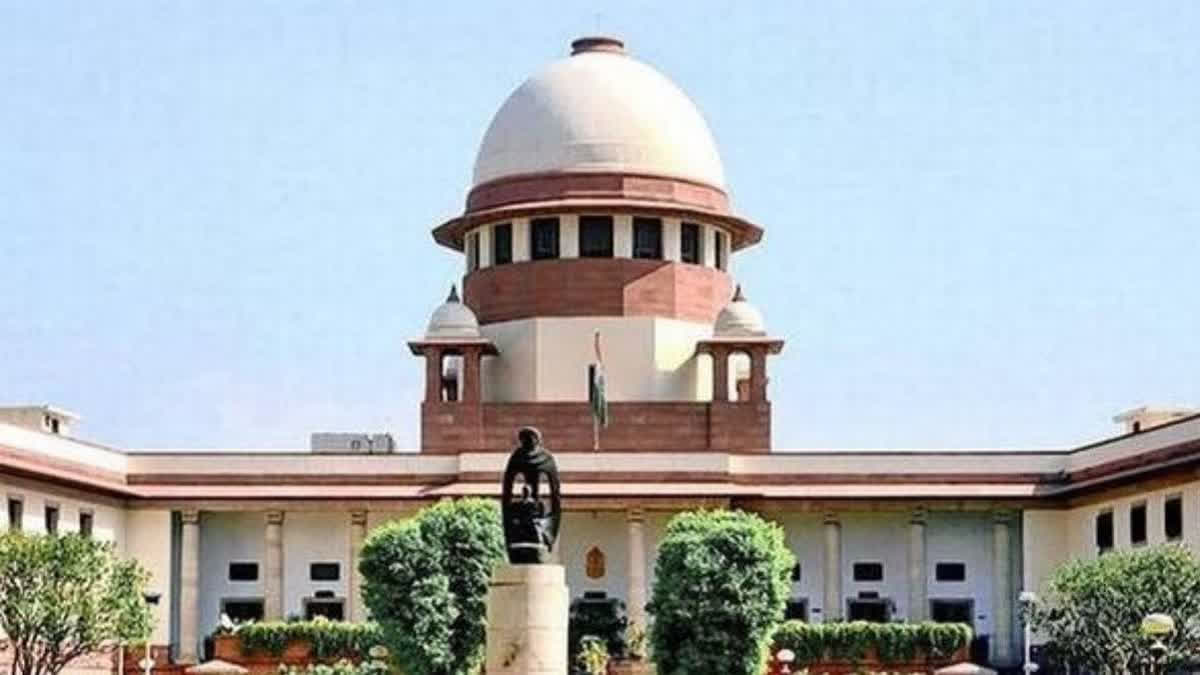New Delhi: The Supreme Court on Wednesday strongly criticised the practice of announcing freebies prior to elections, saying that people were not willing to work as they were getting free ration and money, and, on the aspect of poverty-stricken people, observed, “rather than promoting them to be part of the mainstream society by contributing to the development of the nation, are we not creating a class of parasites?”
The matter came up before a bench comprising justices B R Gavai and Augustine George Masih. The apex court was hearing a matter concerning the right to shelter of homeless persons in urban areas.
Justice Gavai, criticizing the freebies announced by political parties’, said it is the main reason that the people are not willing to work, as they are getting free rations and money without doing any work.
During the hearing, a counsel argued before the bench that compassion is only for the rich and not for the poor. At this juncture, Justice Gavai told the counsel to not use the court as a platform for making a political speech and if he is espousing the cause of someone, then he must restrict his arguments and not make unnecessary allegations.
“How do you say that compassion is only shown for the rich….”, said Justice Gavai. Advocate Prashant Bhushan, representing a party in the matter, said the lawyer was raising the issue with the removal of shelters, which were removed for the beautification of the area.
Justice Gavai said that the counsel for the Delhi government informed the court that the shelters were in a dilapidated state. “The affidavit says facilities would be provided to them. Rather than promoting them to be part of the mainstream society by contributing to the development of the nation, are we not creating a class of parasites?”, observed Justice Gavai.
“Unfortunately, because of these freebies, which (are declared) just on the anvil of elections.... Some Ladki Bahin, some other schemes…the people are not willing to work. They are getting a free ration; they are getting an amount without doing any work. Why should they…would it not be better to make them part of mainstream society? Permit them to contribute to the development of the nation”, said Justice Gavai.
Bhushan said if they have some job, they will be part of the mainstream society, and the problem is that they do not have a shelter. Justice Gavai told Bhushan that he is sharing practical experiences, and added, “Because of these freebies, some states give free ration…people do not want to work. I come from an agricultural family because of the freebies in Maharashtra they just announced prior to the election. The person involved in agriculture is not getting labourers. Everybody getting free (ration) at home”.
Justice Gavai suggested that the situation should be balanced. Bhushan said the shelter is for those people who do not have wherewithal to get food at market prices and because of this reason the Food Security Act was brought. Bhushan who seek shelter are usually employed in menial jobs and they do not have enough money to afford a shelter, where they can spend the night.
Attorney General R Venkataramani, representing the Centre, contended before the court that the central government was in the process of finalising the urban poverty alleviation mission, where the shelter issue will be an important part. “Pilot projects are happening…probably Union will work out funding modalities…shaping policy in this context. Of course, compassion must guide all of us, there is no difficulty with that but mere compassion is not sufficient….”, said AG. He stressed that the issue of shelter is complex and cannot be dealt with in a linear fashion.
The top law officer stressed that the mission would include the provision of shelter for the urban homeless.
The bench asked the top law officer to verify from the Centre as to within how much time the urban poverty alleviation mission would be made applicable. After hearing detailed submissions in the matter, the apex court has scheduled the matter for further hearing after six weeks.



